Nightmares On Wax interview
home
News
New Reviews
Reviews Archive
Interview Archive
Hall Of Fame
Links
Contact

-
NOW's DJ Ease

Aug 1998 Interview transcript
Thanks to Denise Benson & the JVC Urban Rhythm Festival
You've been with Warp for a long time.
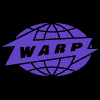
It's a friendship to be honest. It's not a business relationship. Their attitude is "get it right," you know. Obviously you've got to try and keep the momentum going because you build up that fan base and people want to know what is happening. And people forget. But, at the same time, Warp's belief is "build it to last." Which is the way I think as well. Nightmares is maturing as time goes on. And eventually things are coming together. Now if we had rushed everything then we probably wouldn't be where we are now. It's not like a major label where you've got schedules left, right and center, and you've got share holders to answer to. (laughs) So the mentality is totally different. Warp is totally about music. And the success that might come out of that is a bonus.
Who runs Warp?
Steve Beckett and Rob Mitchell. I met Steve while I was distributing one of my own tunes on a label that I'd set up to just to get my tracks out. And a week after meeting Steve we sat down and had a meeting because they wanted to release "Dextrous," which was one of those first tunes. And it just went from there really. So we're the longest running act on the label, and like I say it is a friendship more than anything.
So you met them 1989. What kind of music were you making then?
We were doing tracks like "Aftermath" and "Dextrous" which were a combination of early house (some people say techno) with heavy hip hop influences in there, ie the beats and stuff. And just some of the sounds we were using, because we come from the hip hop background heavily - it was what got us into making music, through the era of break dancing and DJ'ing. We stem from there.
So Poverty Records was your label?
Yeah, that was the first thing we put out.
How many Poverty releases were there?
There was only the one EP - 2000 copies. The whole idea behind doing it was a label thing. Then after that we got the deal with Warp and it was like "look let's put our energies really into what we want to do, which is make music." But I do have artists that I'm working with at the moment that I do want to bring up through the camp, through the Nightmares On Wax route instead of actually pushing them out there individually as artists. Because I think that NOW has taken a long time to get itself to the stage it is at, so I might as well get the best artists on stage and use that as an advantage.
What were the tracks on that first single?
"Dextrous," "Let It Roll," and "Stating The Fact," which was a rap track.
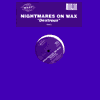
Was the first "Dextrous" the same version that came out on Warp?
Well actually the original version is on the b-side of the Warp single - the "Downbeat Mix."
I just listened to that single and what I hear is some sort of funky African rhythms more than hip hop, like the group No Smoke on the Warriors Dance label. And it seems to me that at that time Outer Rhythm was releasing similar Afro-techno things that were off-shoots of the house scene like Leftfield's Djum Djum project.
Because we were DJs, we just made music that went down in our club. When I say the hip hop element was in there I mean the snare sound and stuff like that. The whole approach towards putting them beats together instead of just getting your 909 drum machine and going "bush, bush, bush, bush" which most people were doing at that time. We were doing it with the same approach as you do it in hip hop, you get your sampled snare, you get you sampled kick and put them together in that sense. And obviously the bass lines were more from a reggae background. And obviously the keyboards were part of the techno/Kraftwerk side of it. And also there was the tribal edge to it, just because of the chants and stuff we liked to put in there.
So there was a tribal house thing going on?
Yeah, but in them times you won't have labelled it "tribal house" or anything. People would probably only come with that recognition after tribal house had happened. Same with the drum & bass thing. People said that we did early jungle. Do you know what I mean?
Did the DJs play your records faster?
Our records? I have been told about somebody playing "Nights Interlude" at 45. (laughs)
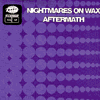
How about your early singles, because you had these conga breaks that could have been hardcore-ish in "Aftermath."
I can hear the drum & bass sound in "Aftermath" totally. But then I always said that drum & bass has always been here. I could say it's just what gets brought to the forefront - what is decided is the thing of the moment. It's like the speed garage thing. It's like "well hang on here a minute, what are you talking about, this has always been here? It's good but it's nothing new." Do you know what I mean? People like to label and categorize things and make out that it is something totally new. And I think that always happens with the house thing anyway.
Where was the singing on "Aftermath" and "I'm For Real" from?
It was Cuba Gooding on "Aftermath" and on "I'm For Real" it is Robert Owens, from the acappella of Frankie Knuckles' "Tears."
Did you ever have problems with sample clearance?
On "I'm For Real" we used a Vicious Pink sample as well. To be honest back in them days people just didn't bother. (laughs) You'd just sample what you like and just get on with it. It turned out that the girl in Vicious Pink was married to a top music lawyer, which ended up being really heavy.
When I interviewed Richard Kirk he told me they had made the Sweet Exorcist's "Testone" for a particular club night. Do you know which one that was?
Yeah, Occasions.
What was the music going on there? The heavy bass stuff?
Yeah, LFO, Unique 3, all that area. It was all happening in the same area in the north of England. It was exciting. Because we were going down to a clubs and listening to people play a new tracks off cassette! Do you know what I mean? Then people would be going down to another club just so they could make sure they got to hear the tune. A few of Warp's first signings were signed like that, because they'd go down to a club and here people play something off a cassette. It was an incredible time, that. That was how exciting it was. You could get away with doing shit like that, do you know what I mean?
Was there enough tunes then to mix a set?
Oh yeah. We had A Guy Called Gerald doing things, there were 808 State doing things. Every few weeks or every month there was somebody popping up from somewhere. It was exciting because there were no boundaries as well. People were just doing shit. And the scene had no boundaries. And once the scene got healthier and bigger and bigger, it developed these boundaries. (laughs) Which is what fucked things up really, I feel.
It seemed like a real meeting of styles, with the low dub bass lines and the techno thing.
One thing that was surprising about all this was that most of the people that were doing the tracks stemmed from old break dance crews. The guys from Unique 3 or whatever, we all used to compete against each other as break dancers. And we're all connected as DJs or... same with like the Forgemasters stuff from Winston and Parrot and all those guys, they were all old break dancers and DJs and shit. So we used to compete against each other before all this was happening. So peoples' backgrounds were from there. So it was like "oh so and so's done a tune," really.
Was there any rivalry between Leeds and Sheffield?
No, no, never. Most of the talk then was the north/south divide. That was the biggest talk of the time.
Oh, it was the newspapers doing that.
Yeah, the journalists were doing that. I think the only reason why people mentioned the north/south divide because it was the first time people were talking about something that wasn't from London. For the first time somebody had the guts to write about something that wasn't London. So I think that is where that all came from.
Was there every any discrimination against your music because you weren't from London?
For awhile yeah. For the whole scene, for awhile. A lot of the clubs in the North got ignored, because people just talked about the clubs in London. So it was inevitable what happened, really. Now I look back and think "well all the shit that was going down in the North, all these tunes that were popping up," it got to that stage where "hang on a minute something's happening up here we've got to take notice." And it's like anything, when people start doing things collectively eventually people have to take notice.
You mentioned guys your age from hip hop but you also had older guys like Richard Kirk and Graham Massey (808 State) from the industrial scene, had you been aware of that music in the early '80's?
Definitely, there was a club in Leeds called The Warehouse which on a Friday night play your electronic music, even your gothic music and house music and hip hop, all in one night. This was before we actually had our own club going. It was hard to hear anyone play hip hop or a bit house music. Even though it wasn't called house music then. It was just funk music. So we would go to The Warehouse to hear just the 20 minute set of something a bit different. And you would hear stuff like your Vicious Pinks and your early Joy Division. And because there was that electro period around as well, you would hear your comparisons.
You can hear the electro approach in your early drum machine lines.
That what I mean when I say a lot of these people were breakers and break dance was electro. It wasn't just your straight up New York hip hop, it was the electro sound coming as well. Which was total Kraftwerk. All the influences were there.
It must have been humorous for you to hear a younger generation, like the Jedi Knights, bring it back again.
Yeah, some of it is good and some of it is not all that. I think the Jedi Knights are excellent.
I interviewed them and they were talking about break dancing on lino in malls.
Oh yeah, yeah, walking around town with lino on your shoulder (laughs). Your mom getting home and realizing that a piece of lino is missing out of the kitchen. (laughs)
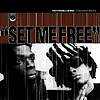
I believe NOW was the 1st Warp band to have your faces on the cover.
I've never thought about it. To be honest all the cliches that were being made we were out to break 'em. There was the whole thing about the "bleep" culture and everything. Sweet Exorcist took the piss out of it by doing an album called Clonk, as if "clonk" was the next sound. And that was basically tongue-in-cheek because people were saying techno was "bleep" music. As far as we were concerned we were just doing club music, dance tracks. People need to label things and it is which journalist can break the new name - same with the trip hop thing. It is quite funny now to look at it now.
Was it somebody in Mixmag who came up with "trip hop"?
Andy Pemberton from Mixmag. I even know the culprit.
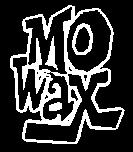
1994 when the Mo Wax thing was happening must have been another exciting time.
Yeah. I had a few conversations with James Lavelle and he was very complimentary, saying our first album inspired him to do the label. Just because he felt that he had so much in relation with a lot of DJs who wanted to make music in England, because the UK hip hop thing wasn't getting a lot of recognition it wanted. At that point UK rappers hadn't reached the point of being out there and being heard. They are now, but the whole "trip hop" thing was meant to be the answer to hip hop. And now people are saying that drum & bass scene is the UK's answer to hip hop. But that whole era of '94 was just really exciting because it was like "what goes around comes around" and things were coming around again. So that there was something other than house music happening. Which has always been happening but people became to take note.
Had you heard of James Lavelle before that?
No, to be honest I hadn't. I knew that he worked at Blue Note Records in London, which was a shop. And I knew that he DJ'ed a little bit. And then he popped out a couple 12"ers and tracked down DJ Shadow, and it just went on from there. I think James is about 4/5 years younger than me.
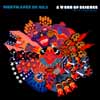
So you were reading in an article where James was talking about your 1st record?
Yeah he mentioned it and then he actually rang me up to do the La Funk Mob remix. And I did that and we got chatting. Then he booked me for one of his club nights to DJ, and then obviously the scene was growing and we've just been seeing each other since then. And tied down a friendship through that.
That La Funk Mob remix EP was fantastic. It had people from different areas, like Richie Hawtin. Your track has cool downtempo breaks in it. Did James try to sign you to Mo Wax?
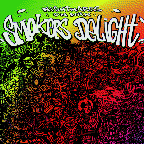
- My whole idea was to do a hip hop chill out album. After going out one night in 1991 and sitting back and listening to the KLF album, I thought "what would it be like if you could do a hip hop chill out album?" I didn't know what I was going to do it as, but I was going to do it and I've been working on it ever since. The whole Mo Wax happening was perfect timing for me to bring it to the forefront because there was that buzz there. And at the same time I had this vision to be doing this. So for people to say it was completely different from the first album, is mistaken.
Well no, because I was still under contract at Warp. I had the Smokers Delight album going anyway, which I had been writing even before we finished the first album. But I was sitting on this album because it was a different project initially. But at that point when James called me to do the remix I was well up for it. At that point he was asking me what I was doing but I was still under contract with Warp and stuff. We were going to drop the Smokers album any minute. We only expected to sell about 5,000 albums and now we're knocking on 100,000. It's kind of bizarre really.
That must have been wild to have a downtempo album ready to go as the the Mo Wax thing blew up.
Yeah, a lot of people were asking me what I was doing now and the Smokers album wasn't like the old Nightmares tracks, and really that was people talking about singles. That was people recognizing Nightmares for the singles, they weren't talking about the last album. Because there are excerpts of Smokers Delight on the first album. There was four tunes there - "Nights Introlude," "Playtime," "Back into Time," and "How Ya Doing." There were tracks on there that had the elements of Smokers Delight. And basically what I did was enhanced that and make a whole album.
They are forgetting about the funk part of the Warp catalogue, which was over-shadowed by the techno.
Yeah. That was another thing that people always said: "how does it feel to be on a techno label?" And I would say: "well, what are you talking about? I don't know what you mean." I'm the longest running artist on the label, if anything is different it is the things that have come afterwards. And it makes no difference anyway. The sign of a good label is to be versatile, and not be pigeonholed. And I think Warp has shown that with some of the signings that they've got. With your Red Snappers and your Jimi Tenor.
Warp-net NOW page
Matador NOW page
